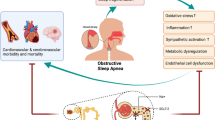Abstract
Purpose
The impact of use of sodium-glucose transporter 2 (SGLT2) inhibitors on occurrence of various kinds of respiratory disorders has not been established. We aimed at evaluating the relationship between use of SGLT2 inhibitors and occurrence of 9 kinds of noninfectious respiratory disorders.
Methods
Large randomized controlled trials (RCTs) of SGLT2 inhibitors were included in this study. We conducted fixed-effects meta-analysis to synthesize risk ratios (RRs) and 95% confidence intervals (CIs). We did subgroup analysis respectively stratified by type of underlying diseases and type of SGLT2 inhibitors.
Results
Nine Large RCTs were included for analysis. Compared with placebo, SGLT2 inhibitors significantly reduced the occurrence of overall respiratory disorders (RR 0.75, 95% CI 0.62–0.91), acute pulmonary oedema (RR 0.51, 95% CI 0.29–0.88), asthma (RR 0.57, 95% CI 0.33–0.995), and sleep apnoea syndrome (RR 0.35, 95% CI 0.12–0.99). SGLT2 inhibitors showed the reduced trends in the risks of chronic obstructive pulmonary disease (COPD) (RR 0.79, 95% CI 0.61–1.02; P = 0.073) and pulmonary hypertension (RR 0.43, 95% CI 0.16–1.17; P = 0.098). SGLT2 inhibitors had no significant effects on three other respiratory disorders. These effects exhibited by SGLT2 inhibitors were consistent across different underlying diseases (Psubgroup ≥0.209) and different SGLT2 inhibitors (Psubgroup ≥0.192).
Conclusions
SGLT2 inhibitors can significantly reduce the occurrence of acute pulmonary oedema, asthma, and sleep apnoea syndrome; and produce the reduced trends in the risks of COPD and pulmonary hypertension. These findings will prompt further investigation on SGLT2 inhibitors for primary and secondary prevention of various respiratory disorders.



Similar content being viewed by others
Abbreviations
- SGLT2 inhibitors:
-
sodium-glucose transporter 2 inhibitors
- T2D:
-
type 2 diabetes
- HF:
-
heart failure
- CKD:
-
chronic kidney disease
- RR:
-
risk ratio
- CI:
-
confidence interval
- PRISMA:
-
Preferred Reporting Items for Systematic Reviews and Meta-Analyses
- RCTs:
-
randomized controlled trials
- ARDS:
-
acute respiratory distress syndrome
- COPD:
-
chronic obstructive pulmonary disease
- ILD:
-
interstitial lung disease
- PH:
-
pulmonary hypertension
- RF:
-
respiratory failure
- Psubgroup:
-
p for subgroup differences.
References
C.P. Cannon, R. Pratley, S. Dagogo-Jack et al. Cardiovascular Outcomes with Ertugliflozin in Type 2 Diabetes. N Engl J Med 383(15), 1425–1435 (2020)
V. Perkovic, M.J. Jardine, B. Neal et al. Canagliflozin and renal outcomes in type 2 diabetes and nephropathy. N Engl J Med 380(24), 2295–2306 (2019)
S.D. Wiviott, I. Raz, M.P. Bonaca et al. Dapagliflozin and cardiovascular outcomes in type 2 diabetes. N Engl J Med 380(4), 347–357 (2019)
B. Neal, V. Perkovic, K.W. Mahaffey et al. Canagliflozin and cardiovascular and renal events in type 2 diabetes. N Engl J Med 377(7), 644–657 (2017)
B. Zinman, C. Wanner, J.M. Lachin et al. Empagliflozin, cardiovascular outcomes, and mortality in type 2 diabetes. N Engl J Med 373(22), 2117–2128 (2015)
M. Packer, S.D. Anker, J. Butler et al. Cardiovascular and renal outcomes with empagliflozin in heart failure. N Engl J Med 383(15), 1413–1424 (2020)
J. McMurray, S.D. Solomon, S.E. Inzucchi et al. Dapagliflozin in patients with heart failure and reduced ejection fraction. N Engl J Med 381(21), 1995–2008 (2019)
H. Heerspink, B.V. Stefánsson, R. Correa-Rotter et al. Dapagliflozin in patients with chronic kidney disease. N Engl J Med 383(15), 1436–1446 (2020)
Y. Tang, Q. Sun, X.Y. Bai, Y.F. Zhou, Q.L. Zhou, M. Zhang, Effect of dapagliflozin on obstructive sleep apnea in patients with type 2 diabetes: a preliminary study. NUTR DIABETES 9(1), 32 (2019)
S. Furukawa, T. Miyake, H. Senba et al. The effectiveness of dapagliflozin for sleep-disordered breathing among japanese patients with obesity and type 2 diabetes mellitus. ENDOCR J 65(9), 953–961 (2018)
K. Sawada, S. Karashima, M. Kometani et al. Effect of sodium glucose cotransporter 2 inhibitors on obstructive sleep apnea in patients with type 2 diabetes. ENDOCR J 65(4), 461–467 (2018)
D. Moher, A. Liberati, J. Tetzlaff, D.G. Altman, Preferred reporting items for systematic reviews and meta-analyses: the prisma statement. PLOS Med 6(7), e1000097 (2009)
J.P. Higgins, D.G. Altman, P.C. Gotzsche et al. The cochrane collaboration’s tool for assessing risk of bias in randomised trials. BMJ 343, d5928 (2011)
J.P. Higgins, S.G. Thompson, J.J. Deeks, D.G.A. Measuring, inconsistency in meta-analyses. BMJ 327(7414), 557–560 (2003)
J.P. Higgins, S.G. Thompson, Quantifying heterogeneity in a meta-analysis. Stat Med 21(11), 1539–1558 (2002)
S. Brikman, G. Dori, Sodium glucose cotransporter2 inhibitor-possible treatment for patients with diabetes, pulmonary disease and co(2) retention. Med Hypotheses 139, 109631 (2020)
B. Chowdhury, A.Z. Luu, V.Z. Luu et al. The sglt2 inhibitor empagliflozin reduces mortality and prevents progression in experimental pulmonary hypertension. Biochem Biophys Res Commun 524(1), 50–56 (2020)
H.J. Park, H. Han, E.Y. Oh et al. Empagliflozin and dulaglutide are effective against obesity-induced airway hyperresponsiveness and fibrosis in a murine model. Sci Rep 9(1), 15601 (2019)
Author information
Authors and Affiliations
Corresponding author
Ethics declarations
Conflict of interest
The authors declare no competing interests.
Additional information
Publisher’s note Springer Nature remains neutral with regard to jurisdictional claims in published maps and institutional affiliations.
Supplementary information
Rights and permissions
About this article
Cite this article
Qiu, M., Ding, LL., Zhan, ZL. et al. Use of SGLT2 inhibitors and occurrence of noninfectious respiratory disorders: a meta-analysis of large randomized trials of SGLT2 inhibitors. Endocrine 73, 31–36 (2021). https://doi.org/10.1007/s12020-021-02644-x
Received:
Accepted:
Published:
Issue Date:
DOI: https://doi.org/10.1007/s12020-021-02644-x




